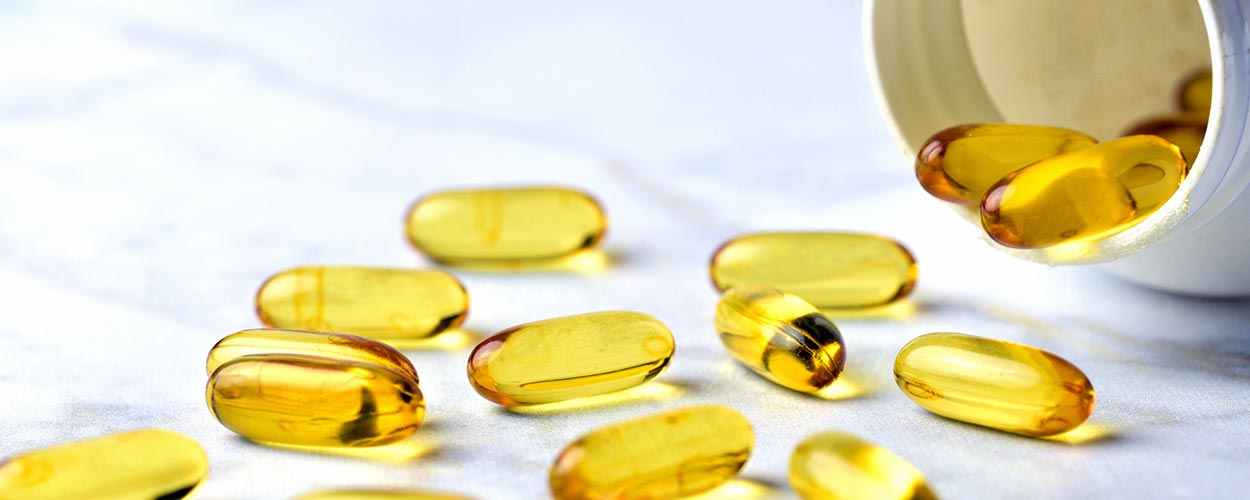- Bariatric Surgery
- Cardiology
- Transplants
- Neurology
- Oncology
- Bladder Cancer Treatment
- Bone Cancer Treatment
- Breast Cancer Treatment
- Colon Cancer Treatment
- Esophagus Cancer Treatment
- Kidney Cancer Treatment
- Leukemia Treatment
- Liver Cancer Treatment
- Lymphoma Treatment
- Lung Cancer Treatment
- Myeloma Treatment
- Prostate Cancer Treatment
- Pancreatic Cancer Treatment
- Ovarian Cancer Treatment
- Testicular Cancer Treatment
- Orthopedics
The most important Vitamin you nee-D!
General Health
There is a trending Vitamin D crisis that is going on these days amongst the world’s population and it arises an immense need to focus on the D. Popularly known as sunshine vitamin, it decidedly ranks high on the list of deficiencies on a global level.

What’s so important about it?
Vitamin D is one of the four fat soluble vitamins needed by us and works on a number of important factors in our body. It not only plays a significant role in maintain bone density, bone mineralization, muscular strength, immune function, but also for regulation of other biomolecules and regulatory genes.
So deficiency of Vitamin D can cause health problems related of bones such as Osteoporosis, osteomalacia (fragile bones), muscular pain, reduced immunity and neuromuscular functions. Vitamin D has also been linked to cancer, inflammatory disorders, diabetes, dementia, bone disorders and many other disorders. The deficiency is also the cause of rickets which is softening of bone in children due to poor bone health. The low levels of vitamin D are also associated with stress fractures and sports injuries in active people.
Therefore, it is very important to get tested for vitamin D levels if haven’t already and it is equally important to optimize the levels if required!
The deficiency can arise in anyone and one must get tested for it through a simple blood test – 25(OH) D test. The symptoms associated with sub-optimal levels of Vitamin D in blood are:
- Muscle weakness and fatigue
- Bone Loss
- Impaired Wound Healing
- Bone and Back Pain
- Low Immunity
- Mood changes or Depression
- Hair Loss
Who should particularly look out for Vitamin D deficiency?
- Pregnant women and breastfeeding mothers
- Postmenopausal women
- Patients of chronic kidney disease and parathyroid disease
- History of long-term steroids usage
- Elderly people who are bed-ridden or home-bound
Connect with Experts & Get a Free Personalized Quote
Where to get it from?
- Vitamin D popularly known as sunshine vitamin as its major source is sunlight exposure. The ultraviolet rays, specifically, UV-B in the sunlight stimulates the synthesis of Vitamin D3 in our body and then liver and kidney convert it to metabolically active form. This also depends on factors like season of the year, geographical location, age, skin pigmentation, amount of skin exposed, and use of clothing and sunscreen. Receiving direct sunlight, which means direct exposure of the skin to sunlight and not through window as glass prevent UV. One has to be under the sun for at least 10-15 min for light skinned individuals and 20-25 min for dark skin tones as the absorption of sunlight is less in them. The best time is considered to be between 10 a.m. to 3 p.m. should be sufficient to make the required amount. Another important thing to keep in mind here is to too much sunlight exposure won’t cause over-abundance of Vitamin D in your body as there is a feedback mechanism to regulate it and excess is stored in another form, maintaining the optimum level (Holick, 1995). But excess of sunlight, particularly UV can cause skin burns and skin cancer, so it is critical to keep that in mind to keep this in mind too and use clothing or sunscreen beyond a point.
- Vitamin D exists in five forms – D1, D2, D3, D4 and D5. The most well-known and easily absorb-able form is vitamin D3 (cholecalciferol) which can be obtained from food items like fish, egg yolks, and cheese. Another of the known form is vitamin D2, can be found in mushrooms, and fortified foods like milk and cereals.
- With the lifestyle most of are living, it is not so easy to get enough sunlight throughout the day. But there is solution for this as well- Supplements. Vitamin D supplements are mostly in the form of vitamin D3 as it is more easily absorbed and are recommended in case of deficiency. Usually the recommended level is 600 – 2,000 International Units (IUs) of vitamin D per day and no more than 4,000 IUs should be taken as there are normally no adverse effects below this range.
Note:
Excess consumption of supplements can cause Vitamin D toxicity which is the highly increased level of this vitamin in blood. This can lead to hypercalecimia which is the increment of calcium levels in blood and associated with symptoms like nausea, weight loss, poor appetite, fatigue, frequent urination and disorientation.

Written By Dr. Suneet Singh

Verified By Dr. Surbhi Suden
Dr. Surbhi Suden is one of the founders of Lyfboat and a doctor with a renowned name in the Medical tourism industry. She has been working with international patients since 2008 and is a deeply committed professional with a long term vision of transforming the current healthcare scenarios.Cost Calculator

Top Specialities
- Best Doctors in India
- Best Bariatric Surgeons in India
- Best Bone Marrow Transplant Doctor in India
- Best Cardiologist in India
- Best ENT Doctor in India
- Best Epilepsy Doctors in India
- Best Gastroenterologist in India
- Best Hair Transplant Surgeon in India
- Best Hematologist in India
- Best Hip Replacement Surgeon in India
- Best Infertility Doctor in India
- Best Knee Replacement Surgeon in India
- Best Liver Transplant Surgeon in India
- Best Nephrologist in India
- Best Neurologist in India
- Best Neurosurgeon in India
- Best Oncologist in India
- Best Orthopedic Doctor in india
- Best Ophthalmologist in India
- Best Penile Implant Surgeon in India
- Best Penile Enlargement Doctor in India
- Best Plastic Surgeon in India
- Best Pulmonologist in India
- Best Rhinoplasty Surgeon in India
- Best Rhinoplasty Surgeon in Turkey
- Best Spine Surgeon in India
- Best Urologist in India
- Best Cardiologists in the World
Top Treatments
- Bone Marrow Transplant Cost in Turkey
- Gastric Band Cost Turkey
- Cochlear Implant Surgery Cost in India
- Cancer Treatment Cost in India
- Erectile Dysfunction Treatment Cost in India
- Hair Transplant Cost in India
- Laser Eye Surgery Cost in India
- Penile Implant Surgery Cost in India
- Penis Enlargement Surgery Cost in India
- Spine Surgery Cost In India
- 5000 Grafts Hair Transplant Cost Turkey
- Gastric Sleeve Surgery in Turkey
- Turkey Hair Transplant Package
- Liver Transplant in Turkey
- Penis Enlargement in Turkey
- Kidney Transplant Cost in Turkey
- Knee Replacement in Turkey
- IVF Cost in Turkey
- Proton Beam Therapy Cost in India
- LVAD Cost in India
- Pediatric Liver Transplant Cost in India
- Limb Lengthening Surgery Cost in Turkey
- 5000 Grafts Hair Transplant Cost Turkey
- 5000 Grafts Hair Transplant Cost
- Liver Transplant Success Rate in India
- Liver Cancer Treatment Cost
- Pancreatic Cancer Treatment Cost
- Prostate Cancer Treatment Cost
Best Hospitals for Top Treatments
- Best Blood Cancer Hospital in India
- Best Bone Cancer Hospital in India
- Best Bone Marrow Transplant Hospitals in India
- Best Breast Cancer Hospital in India
- Best Cancer Hospitals in India
- Best Hospital for Brain Tumor in India
- Best Hip Replacement Hospital in India
- Best Heart Hospital in India
- Best Kidney Transplant Hospital in India
- Best Knee Replacement Hospital in India
- Best Liver Cancer Hospital in India
- Best Liver Transplant Hospital in India
- Best Lung Cancer Hospital in India
- Best Neurology Hospital in India
- Best Orthopedic Hospital in India
- Best Spine Hospitals in India
- Best IVF Centre in India
- Best IVF Clinics in Turkey
- Best Hair Transplant Clinic in Turkey
- Best Prostate Cancer Hospital in India
- Best Hospital for Cyberknife Treatment in India
- Best Urology Hospital in India
- Best Hospitals for Pancreatic Cancer Treatment in India
- Best ENT Hospital in India
- Best Kidney Transplant Hospitals in Turkey
- Best Hematology Hospital in India
- Best Lymphoma Treatment Hospitals in India
Latest Articles
- Best Countries for Plastic Surgery
- Best Countries for IVF
- Best Countries for Hair Transplant
- Blood Cancer Treatment Cost
- Brain Tumor Surgery Cost
- Robotic Heart Surgery Cost
- Knee Replacement Surgery Cost
- Penis Enlargement Surgery Cost
- Penile Implant Surgery Cost
- Liver Transplant Cost
- Gastric Band Abroad
- Tummy Tuck Abroad
- Gamma Knife Surgery Cost
- Spinal Fusion Surgery Cost
- Gastric Sleeve Abroad
- Gastric Bypass Abroad
- Scoliosis Surgery Cost
- Heart Valve Replacement Surgery Cost
- Life Expectancy After Kidney Transplant
- Best Country for Rhinoplasty
- Bone Marrow Transplant Success Rate
- Bone Marrow Transplant Cost
- Best Countries for Breast Augmentation
- Heart Bypass Surgery Cost
- Best Country for Cancer Treatment
- Hip Replacement Surgery Cost
- Kidney Transplant Cost
- Breast Cancer Treatment Cost
Disclaimer: Lyfboat does not provide professional medical opinion on the treatment or diagnosis of a particular ailment. All the offered services and information presented on www.lyfboat.com are only for the purpose of public knowledge and cannot substitute the professional consultation of the physician. Lyfboat strongly advice against copying or cloning of its web content and follows the legal protocols for protection of its intellectual property.
© 2024 Lyfboat Technologies Pvt. Ltd. All Rights Reserved.
Please wait